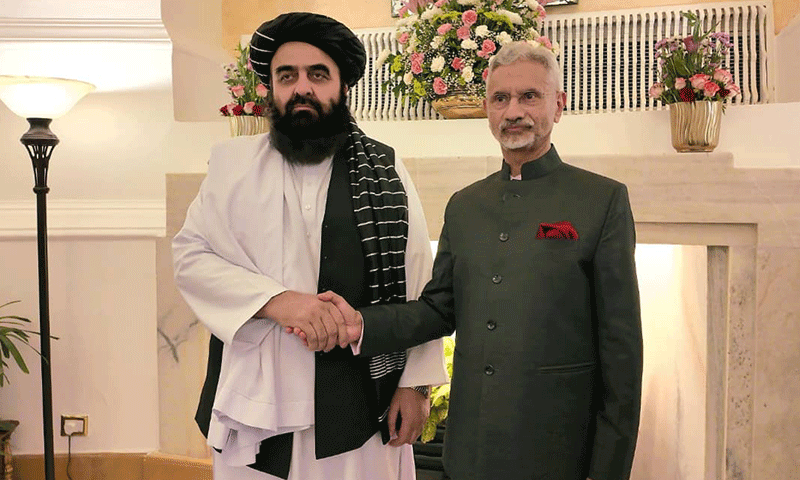NEW DELHI: India refrained from displaying any national flags during a meeting between Indian External Affairs Minister Dr. S. Jaishankar and Afghanistan’s Taliban-appointed Foreign Minister Amir Khan Muttaqi in New Delhi on Friday.
The meeting, held at Hyderabad House, was marked by the complete absence of both the Indian tricolor and the Taliban’s “Islamic Emirate” flag. Neither flag was visible on the walls, behind the dignitaries, nor on the meeting table, an unusual departure from standard diplomatic protocol.
According to diplomatic insiders, this decision was a deliberate move by New Delhi to maintain channels of communication with the Taliban leadership while stopping short of granting them formal recognition.
Prior to the meeting, officials reportedly grappled with the question of which national flag should be displayed. Since India has not formally recognized the Taliban government since its takeover of Afghanistan in August 2021, hoisting the Taliban’s flag was not an option. On the other hand, displaying only the Indian flag could have created an impression of unilateral legitimacy, leading to diplomatic complications.
This visit is particularly noteworthy as it marks the first time a Taliban minister has traveled to India since the group returned to power. Before the delegation’s arrival, Taliban representatives, most notably Suhail Shaheen, head of their political office in Qatar, publicly urged India to grant formal recognition to their government.
Analysts view India’s decision to avoid flag displays as a carefully crafted diplomatic maneuver, enabling New Delhi to engage strategically with the Taliban on political and security matters without altering its official position on recognition.
This balancing act reflects India’s attempt to protect its strategic interests in Afghanistan while adhering to established diplomatic norms.


Comments are closed.